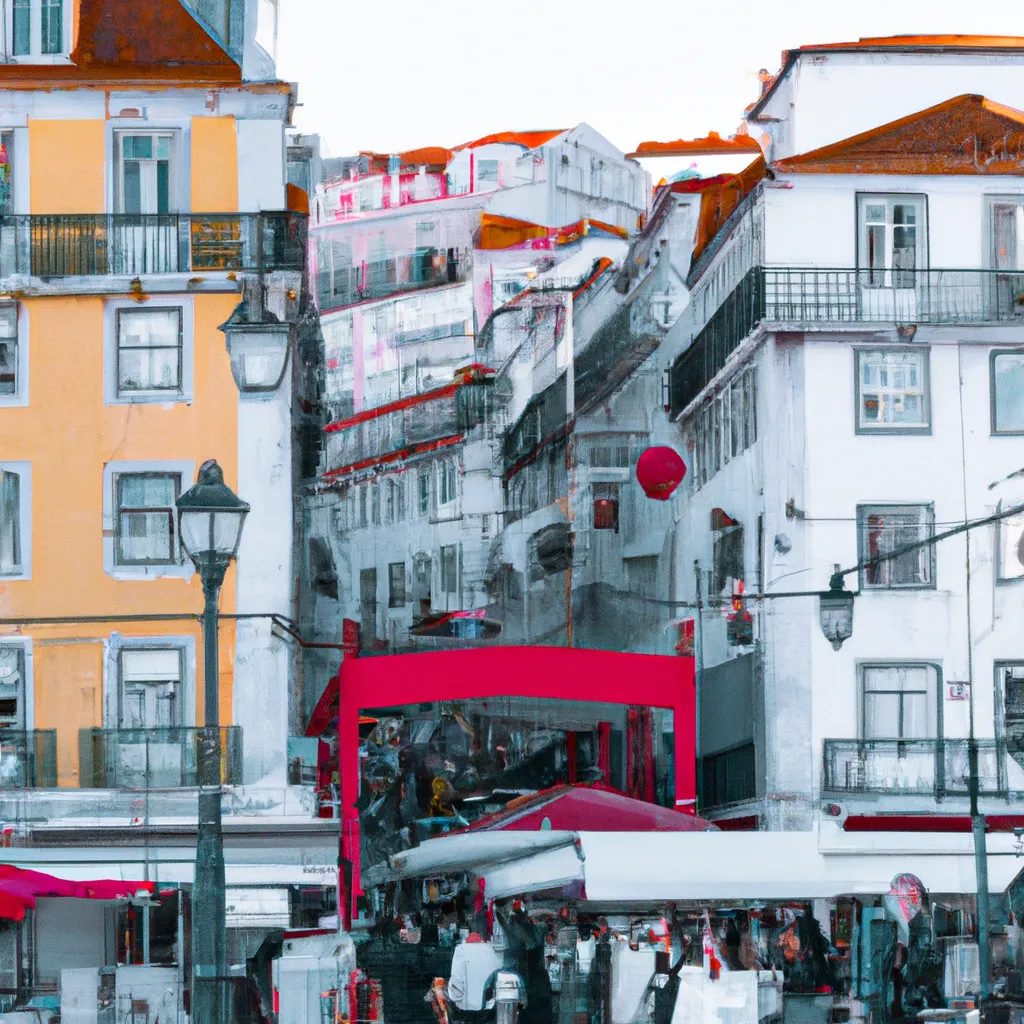Foreign investors are driving up real estate prices in Lisbon.

An article from a source published over 5 years ago tells the story of the Portuguese capital's transformation from an abandoned place to a vibrant city. In the aftermath of the Global Financial Crisis (GFC), high youth unemployment hit Lisbon hard, but the city has experienced a renaissance. You can now see scaffolding-covered buildings on almost every street as private owners and entrepreneurs undertake renovations of historic properties encouraged by government grants.
The new startup sector is also beginning to flourish. Portugal has long been a popular place to live for foreign investors, especially retirees, but tax reforms introduced in 2009 have added value. And more foreign investors are heading to Lisbon, where real estate prices rose 4.9% by November 2017, according to Global Property Guide. Prices per square foot now reach €1400 ($1707.79), according to real estate agent Century 21 Portugal.
It all started with the GFC, says Ricardo Souza, CEO of real estate agent Century 21 Portugal. "When we started to see an increase in demand, it started with foreigners. This new demographic wave of international investors really wants to live in Lisbon. Initially, the French were the ones who flew to Lisbon for the weekend, but now the demand is getting bigger and more diverse, and the profile of investors is changing. Investors with a sum of half a million euros and above consider the city center and its historical core, as well as the Expo district, this area is very popular among Asian investors and there is a lot of land here. Lisbon attracts quality of life, modern infrastructure, climate, easy access to the city center and it is very safe" - says Sofia Rodrigues Nunes, head of real estate and planning at Gómez-Acebo & Pombo Abogados Portugal, agrees that foreign demand, which equals a quarter of total real estate, shows no signs of slowing down.
The French are particularly interested in buying homes in the neighborhoods of Chiado, Principe Real, Baixa, Santos, Alfama and Bairro Alto. They look for old palaces and charming buildings, mainly in Lisbon's historic districts, to renovate and turn them into luxury apartments, characteristic stores or hotels, which they then sell mainly on the French market. "Buyers from the Middle East and Scandinavian countries have also shown great interest and activity. More recently, we are increasingly seeing wealthy Brazilian, Turkish and South African investors coming to Portugal to buy their dream home to live with their families, seduced by the peaceful and safe environment and the European lifestyle," adds Nunes. "These investors prefer the charming villas and ancient palaces in Sintra, the sea view in Estoril or the "golf and sea" at Quinta da Marinha in Cascais, it is also popular with British investors.
13 May 2025
14 May 2025
The growing trend to invest in the luxury market is creating a social problem, however, as prices are rising and the supply of real estate is limited. Bloomberg and The Guardian highlighted some of the adverse effects of the city's real estate boom. Souza agrees. "Over the past two years, we have seen investors focus on the luxury market. Strong international demand is becoming a problem for the Portuguese as there is an accessibility issue in Lisbon. We're seeing a lot of young families pushing toward the suburbs, while prices are rising outside the city." I ask Souza whether such a commercial interest is positive or negative? "I think the pros prevail over the cons," he replies. "Many neighborhoods used to be lifeless and now they have local stores and cafes, they are coming back to life. So I think it's positive.".
Get the best content from Forbes straight to your inbox with the latest research from experts around the world. Follow me on Twitter or LinkedIn. Familiarize yourself with my website. I'm based in London and Stockholm, and I'm interested in how businesses are finding solutions to problems from climate change to social issues to healthcare. As a former fund manager and journalist for the Financial Times, I approach my articles analytically.
Comment
Popular Posts
Popular Offers

Subscribe to the newsletter from Hatamatata.com!
Subscribe to the newsletter from Hatamatata.com!
I agree to the processing of personal data and confidentiality rules of Hatamatata














